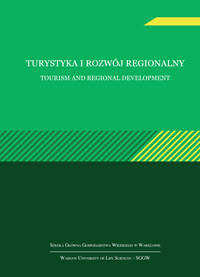Main Article Content
Article Details
Ak R.: The Relationship between Health Expenditures and Economic Growth, Turkish Case, International Journal of Business Management and Economic Research, 2012, 3(1), p. 404–409.
Bozkurt H.: Eğitim, Sağlık ve İktisadi Büyüme Arasındaki İlişkiler: Türkiye İçin Bir Analiz, Bilgi Ekonomisi ve Yönetimi Dergisi, 2010, 5(1), p. 7–27.
Breusch T.S. and Pagan A.R.: The Lagrange Multiplier Test and Its Applications to Model Specification Tests in Econometrics, Review of Economic Studies, 1980, 47, p. 239–53. (Crossref)
Küçükaksoy I., Akalın G.: Fisher Hipotezi’nin Panel Veri Analizi İle Test Edilmesi: OECD Ülkeleri Uygulaması, Hacettepe Üniversitesi İktisadi ve İdari Bilimler Fakültesi Dergisi, 2017, 35(1), p. 19–40. (Crossref)
Pesaran M.H.: General Diagnostic Tests for Cross Section Dependence in Panels, Cambridge Working Papers in Economics no. 0435, 2004, p. 1–42. (Crossref)
Peseran M.H.: A Sımple Panel Unıt Root Test in the Presence of Cross-Sectıon Dependence, Journal Of Applıed Econometrıcs 2007, 22, p. 265–312. (Crossref)
Şimşir N.C., Çondur F., Bölükbaş M., Alataş S.: Türkiye’de Sağlık ve Ekonomik Büyüme İlişkisi: ARDL Sınır Testi Yaklaşımı, Finans Politik & Ekonomik Yorumlar 2015, 52(604), p. 43–54.
Taban S.: Türkiye’de Sağlık ve Ekonomik Büyüme Arasındaki Nedensellik İlişkisi, Sosyo Ekonomi, 2006, 4(4), p. 31–46.
Tunç M.: Kalkınmada İnsan Sermayesi: İç Getiri Oranı Yaklaşımı Ve Türkiye Uygulaması, Dokuz Eylül Üniversitesi İktisadi ve İdari Bilimler Fakültesi Dergisi, 1998, 13(1), p. 83–106.
Westerlund J.: Panel Cointegration Tests of the Fisher Effect, Journal of Applied Econometrics 2008, 23, p. 193–223. (Crossref)
Yardımcıoğlu F.: OECD Ülkelerinde Sağlık ve Ekonomik Büyüme İlişkisinin Ekonometrik Bir İncelemesi, Eskişehir Osmangazi Üniversitesi Sosyal Bilimler Dergisi, 2012, 13(2), p. 27–47.
Yumuşak İ.G., Yıldırım D.Ç.: Sağlik Harcamalari İktisadi Büyüme İlişkisi Üzerine Ekonometrik Bir İnceleme, Bilgi Ekonomisi ve Yönetimi Dergisi 2009, 4(1), p. 57–70.
World Bank Databank, (2015), retrieved from: http://databank.worldbank.org/data/reports.aspx?source=world-development-indicators# (accessed: 28.05.2018).
Downloads
- Wioletta Olejniczak, Aktywność turystyczna mieszkańców wsi po 50. roku życia na przykładzie gminy Bielawy , Turystyka i Rozwój Regionalny: Nr 9 (2018)
Możesz również Rozpocznij zaawansowane wyszukiwanie podobieństw dla tego artykułu.
- Ewa Stawicka, CSR w kontekście zrównoważonego rozwoju sektora rolno-spożywczego , Turystyka i Rozwój Regionalny: Nr 8 (2017)
- Ewa Stawicka, Aspekt społecznej odpowiedzialności w turystyce , Turystyka i Rozwój Regionalny: Nr 6 (2016)
- Ewa Stawicka, Strategia społecznej odpowiedzialności w sektorze małych i średnich przedsiębiorstw na przykładzie projektu „Zwiększanie konkurencyjności regionów poprzez społeczną odpowiedzialność biznesu” , Turystyka i Rozwój Regionalny: Nr 2 (2014)
- Ewa Stawicka, Corporate social responsibility and the milk market in Poland , Turystyka i Rozwój Regionalny: Nr 9 (2018)
- Ewa Stawicka, Poziom innowacyjności w sektorze małych i średnich przedsiębiorstw w Polsce , Turystyka i Rozwój Regionalny: Nr 4 (2015)

Utwór dostępny jest na licencji Creative Commons Uznanie autorstwa – Użycie niekomercyjne 4.0 Międzynarodowe.





